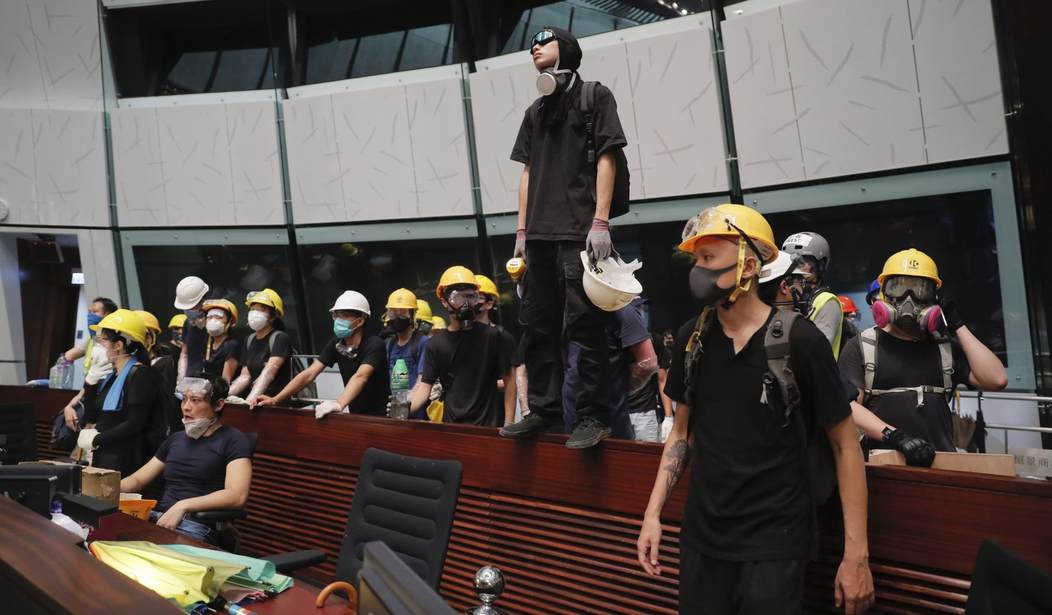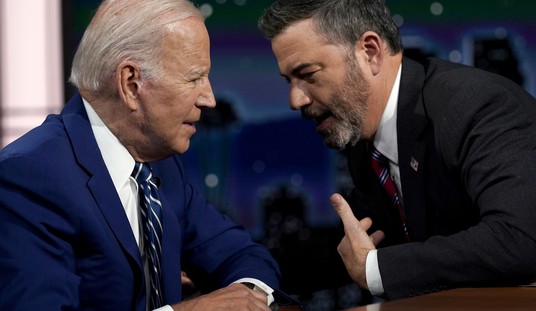On July 1, Hong Kong marked the 22nd anniversary of its return to Chinese rule with peaceful protests that partly turned into violent clashes, exposing divisions within the protest movement.
Consistent with the activities of the past months, protesters demanded the permanent withdrawal of a bill that would allow extraditions to the Chinese mainland and the resignation of city leader Carrie Lam.
Around 550,000 Hong Kong protesters marched peacefully on the streets in the afternoon without any scenes of violence or chaos.
From around 4 a.m. until 8 a.m. local time, protesters initially clashed with the police when they attempted to unsuccessfully block Lam from attending the flag-raising ceremony where the handover of Hong Kong to the People’s Republic of China is celebrated.
At around 9 p.m. local time, hundreds of protesters attacked the Legislative Council building—the headquarters of the unicameral legislature of the Hong Kong Special Administrative Region, accessing it through an entryway that they had smashed with the help of a metal trolley, poles, and scaffolding.
According to the South China Morning Post, when the protesters initially entered the Legislative Council, the police “were nowhere to be seen.” CNN claims that some Hong Kong police were present “in full riot gear,” but did not take actions.
In addition to smashing touchscreen panels and vandalizing the walls, protesters ripped down and smashed portraits of Legislative Council President Andrew Leung and former President Rita Fan, and dismantled closed-circuit cameras inside the building.
They eventually successfully entered the building’s legislative chamber where they spray-painted the red Bauhinia crest black and hung the British colonial flag of Hong Kong from the podium.
The walls inside the legislative chamber were also vandalized, while a sign was put up that read, “There is no way left. There’s no rioters, there’s only tyranny.”
Inside the Legislative Council during the events, Fernando Cheung, vice chairman of the Labour Party and a member of the Legislative Council, stated: “ This is a trap. The protesters this morning who were storming LegCo could have been dispersed easily by the police. They were not a large number, we’re talking about probably a few hundred people. And those who were actually taking action were even smaller in number. And yet the police did not do anything.”
After around two hours of occupation, protesters were made aware that Hong Kong police would arrive to clear the area around the Legislative Council building. The protesters then left the legislature building, which was followed by the arrival of riot police to disperse the crowd outside using tear gas.
Around 13 Hong Kong police officers were taken to the hospital following the protests with the commissioner stating that a chemical powder was thrown at the police.
City leader Carrie Lam stated that she strongly condemns “these violent acts” and will take necessary legal action.
An editorial for Global Times, a publication linked to the Chinese Community Party, also described the July 1 protests as “a complete disregard for law and order” that trampled “on the fundamental interests of society.” Other Chinese publications that are state-run, such as Xinhua News Agency, have not been reporting on the violent incidents as of yet.
Eddie Chu, a member of the Legislative Council, underlined, “If this is left to the police and Beijing to solve, we will face the greatest tragedy we’ve seen in 22 years” of Chinese rule.









Join the conversation as a VIP Member